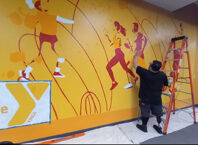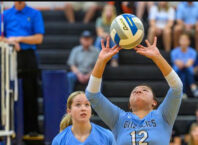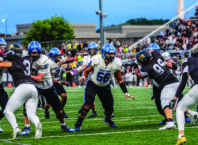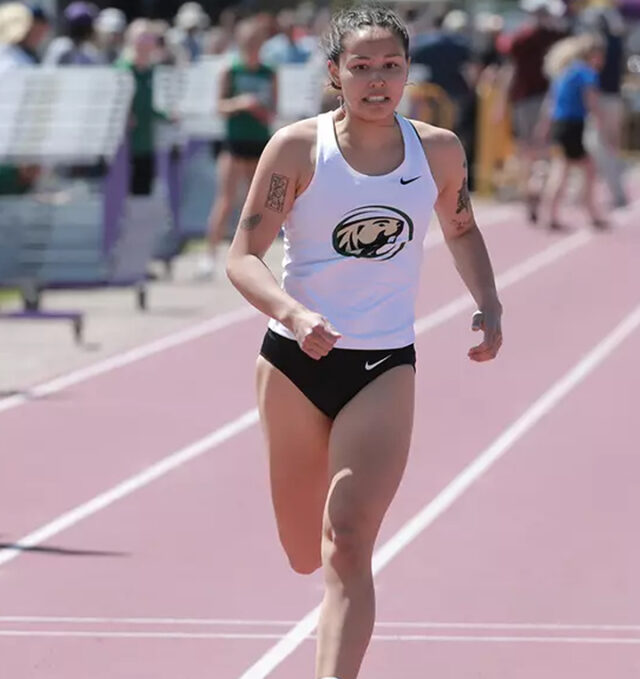
By Dan Ninham
Josie Aitken has been a university athlete for three years and has another year of eligibility that she will be using next school year. The Bemidji HS alum of the class of 2022 made a commitment out of high school to Bemidji State University to compete in cross country and track.
The national current norm seems that college athletes transfer often. This is not the case with Josie Aitken.
Aitken has two Indian names. She said, “I am Ho-Chunk on my mom’s side and Ojibwe on my father’s side. My Ojibwe name means ‘Forever Thunderbird Woman’ and my Ho-Chunk name means ‘Good Nest Builder.’ I am enrolled in the Leech Lake Band of Ojibwe.”
“Throughout my career, I have surprised myself with how well I performed and got myself to some very competitive meets,” said Josie Aitken. “One of my favorites was running at the Drake Relays in Des Moines, Iowa, and being a part of the 4×400 relay that ran the third fastest time in school history.”
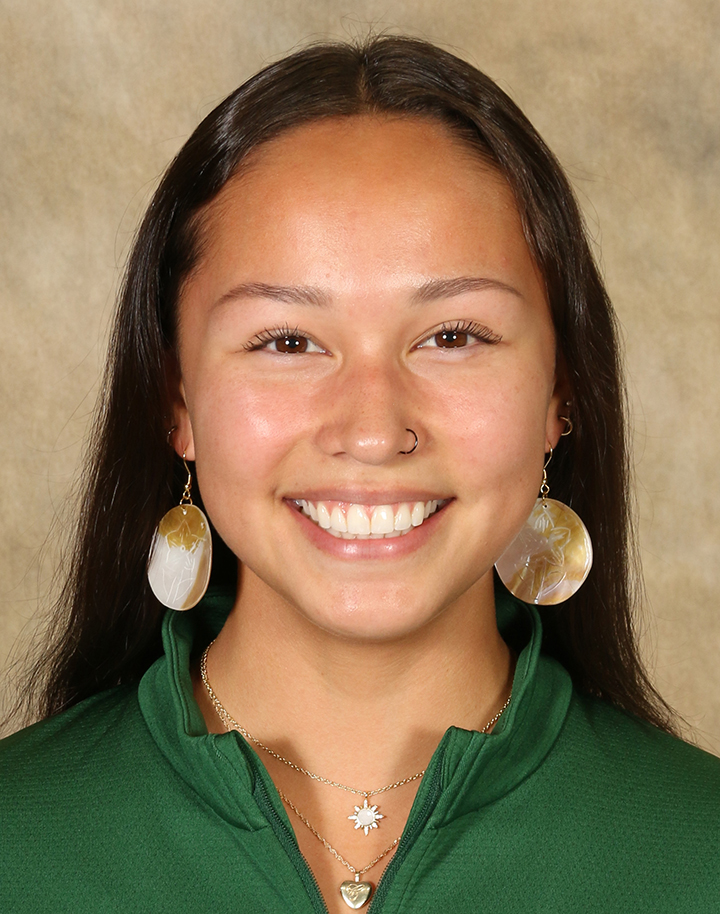
“During that time, I was only in my second year of running college track. My other favorite highlight was from that same year at the Indoor conference championships, and I ran a personal best in the individual open 400m, running 1:00.31, even faster than my outdoor time,” added Aitken.
Athletes experience adversity at some point in their college career. It’s significant to overcome it to strive toward their highest performance level.
“Some adversity I’ve dealt with happened this past season, in my third year of competing for Bemidji State,” said Aitken. “Our sprint coach resigned, and our 400 training group had to train under our head coach, Mike Lynch. “My group had to get used to new coaching, new workouts, and schedules, and it was stressful for everyone since we no longer had a sprints coach to write our workouts and practice sprint drills.”
“It was also tough since we had to get used to new training, and I was not performing as well as I wanted to that season. It was hard to mentally push through that wall and trust the process of the workouts, but by the end of the season, my 4×400 relay team ran a season best, and I split a personal best in the relay, finishing the season strong at our outdoor Conference Championship meet,” added Aitken.
Positive experiences as a university student athlete can provide advice to young student athletes that want to attend college and compete.
“Positive experiences that I have had as a student athlete are being able to represent Indigenous people in college athletics, and being able to be a role model for my two little nieces, who are also Ojibwe and in sports,” said Aitken. “Knowing that I was their inspiration to get them into women’s sports fills me with pride and makes me incredibly happy to be Indigenous in college athletics.”
“Some advice I’d give to young athletes who want to go into college athletics is to keep pushing yourself to be better and to keep pushing your teammates to be better. Good teammates aren’t just there to be your friend or on the team, but they are supposed to push you to be a better athlete, and if they’re a great teammate, they push you to be a better person, on and off the field,” added Aitken.
“Another thing I wish someone had told me when I was in high school would be to get into the weight room and get stronger,” said Aitken. “Weightlifting plays a big part in college athletics in terms of strength and power, and if you can build a good baseline for lifting, it will help you go farther in your athletic career.”
Aitken has a post-college plan in place. She said, “I am currently working on my Bachelor’s in Wildlife Biology, and I plan to graduate in the Spring of 2026. After graduation, I plan to either work on my Master’s in Wildlife, or study Arachnology or Entomology, which is the scientific study of spiders, or insects and arthropods, respectively. These areas of study are often scarce with research opportunities, so the universities I have in mind are in Oregon and Australia.”


